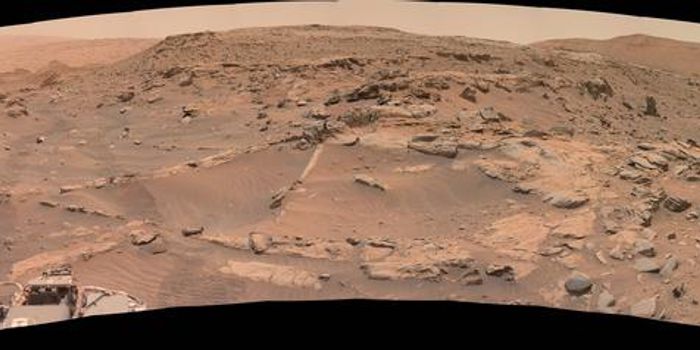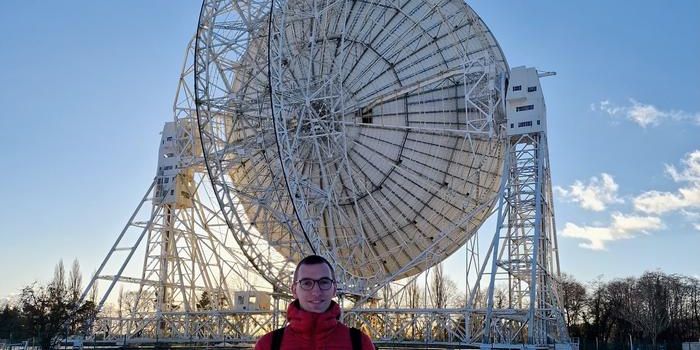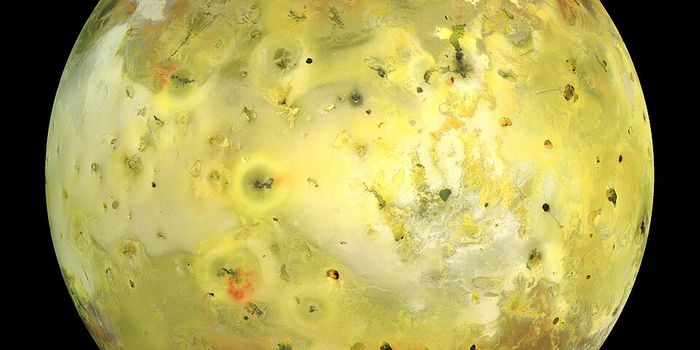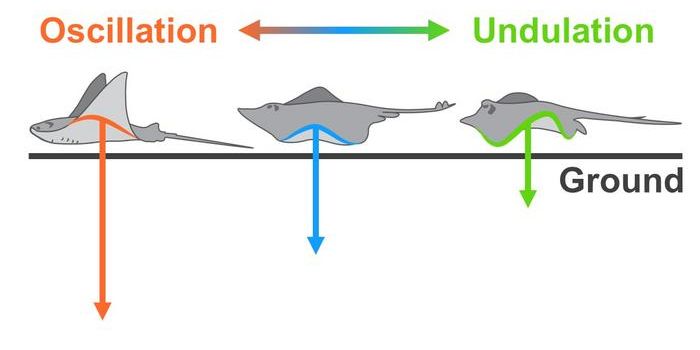Agriculture, Aquaponics, and Floral Hemp Production | Mona Farnisa, MS Student at the University of Nevada, Reno | Grad Student Highlights
This interview series is focused on the graduate student experience across all STEM fields that allows them to get their research, or corresponding graduate coursework, out in front of a large global audience and share their experiences in graduate school. Our goal is to inspire the next generation of STEM students to pursue graduate studies for a myriad of disciplines, and we hope you enjoy reading these amazing stories! If you'd like to be featured in this series, feel free to send an email to laurence.tognetti@labroots.com, Subject Line: Grad Student Highlights Interest!
Collecting data in the hemp field. (Credit: Mona Farnisa)
Mona Farnisa is an MS student in the Sustainable Horticulture Lab and the Department of Natural Resources & Environmental Science at the University of Nevada, Reno (UNR), which she started in 2020. This comes after earning a Bachelor of Science in Environmental Science at Amsterdam University College in 2017, followed by two separate internships at the Interreg Baltic Sea Region and Sprout by Design, then industry work at Dayton Valley Aquaponics and Terra Alta Permaculture Education & Research Center. Her research focus pertains to floral hemp cannabinoid production, and she actively contributes to the growing small-farm movement in Northern Nevada.
“I moved to Northern Nevada five years ago for an aquaponics farm internship,” says Farnisa. “While living here, I found the farming community of Reno to be an inspiring network of individuals committed to expanding the local agriculture scene, supporting farmers financially and socially, and making healthy produce accessible to underserviced communities. I was moved by the determination of farmers to consistently promote diversified local agriculture and every year choose to grow in an incredibly challenging environment. I felt my inner scientist call out and decided to stay in Reno and pursue agricultural research specific to the high desert and Northern Nevada region – and so I started my research on floral hemp production at UNR.”
Harvesting at Reno Food Systems. (Credit: Mona Farnisa)
Farnisa credits her time doing school in The Netherlands for getting her interested in her current research, referring to The Netherlands as being at “the forefront of agriculture research”. It was through a combination of doing a senior thesis on agrochemicals and learning more about the “conglomerate monopoly” of that field, she was drawn to supporting small farms and local agriculture, while raising awareness in her community for farm worker protections.
“I have always felt like a scientist at heart,” says Farnisa. “I also believe research and agriculture go hand in hand. Every new growing season for a farmer is a new experiment in facing the oncoming unique challenges that that season may present. No growing season is ever completely the same. While working on farms, I started becoming interested in tracking plant productivity metrics and developing research questions around how to increase plant productivity and how environmental conditions and nutrient management influence yield.”
Volunteering at Reno Food Systems. (Credit: Mona Farnisa)
Farnisa refers to researching floral hemp as an “incredible experience”, and notes that while there’s still much to learn about it, the research is increasing, especially in Northern Nevada. She says while there is “skepticism and misinformation” about hemp, she’s excited to be able to educate the public about it.
Regarding some of the challenges facing graduate students in her field, Farnisa notes the limited number of available jobs in agriculture and horticulture, specifically in Northern Nevada and the Mountain West region.
“In general, I think something myself and other grad students face is having a broad skillset and interests--cultivated as a result of being in academia--and having to figure out how to narrow down these interests to a specific field and market our unique skillset to suit different jobs,” says Farnisa.
Checking hemp seedlings in the greenhouse. (Credit: Mona Farnisa)
As for her plans after graduation, Farnisa says she’s eyeing industry, noting that while she’s enjoyed her time in academia with combining computer, field, and lab work, she believes other valuable skills can be acquired in industry and used as career steppingstones. She aspires to broaden her plant knowledge into plant ecology and conservation, calling herself a “lifelong plant learner” and she wishes to be trained in everything plant related.
“The field of science focused agriculture is really changing, especially due to climate change and water cuts in the West,” Farnisa explains. “We are really at the beginning of some cutting-edge technological shifts in agriculture, and it will be interesting to see where it goes. Ideally, I would love a job that combines my love for plants, research, and data analysis. Either at a small company conducting novel plant research or an ecological plant conservation group. A huge plus would be getting to spend some time in the field or lab.”
As always, keep doing science & keep looking up!
Once again, if you'd like to be featured in this series, please send an email to laurence.tognetti@labroots.com, Subject Line: Grad Student Highlights Interest!












